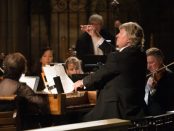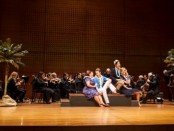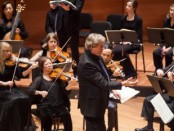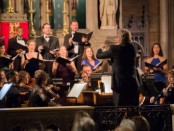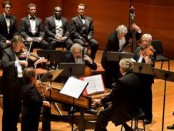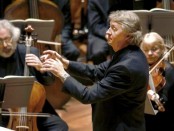American Classical Orchestra and Chorus: Cherubini, Beethoven and Mozart
The two soprano soloists were marvelous. Hélène Brunet combines supple lyricism with technical elegance. Clara Rottsolk’s voice is at once silvery and earthy, delicate and powerful. In their individual arias, both women committed to highly ornamented interpretations; both were able to make ornament feel like a spontaneous, unplanned and experimental development of ideas. In his conducting, Crawford gives his best singers – such as Brunet and Rottsolk – considerable room to make the music their own without ever losing coherence or the appropriate tempo. When singing together, as in “Domine Deus, Rex caelestis,” these sopranos’ voices were beautifully matched. [more]


